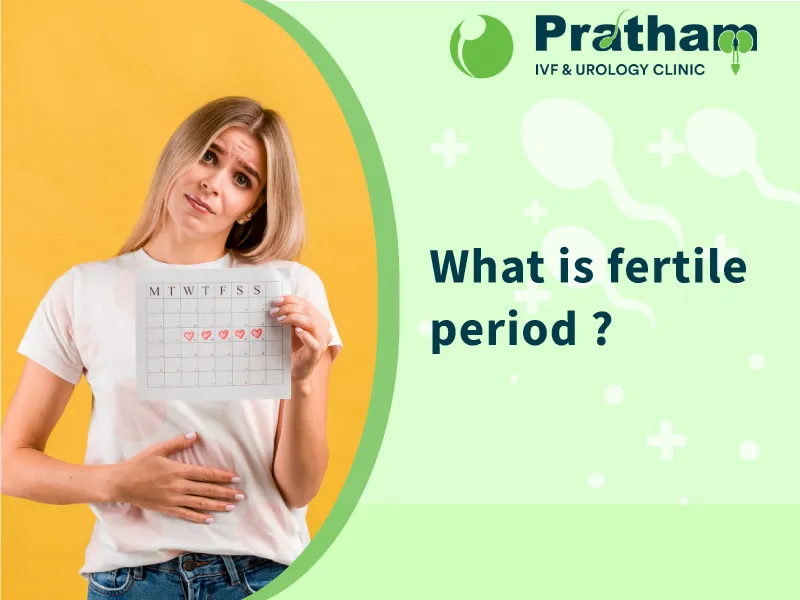
What is the Fertile Period?
Many women find that knowing the fertile period is important when trying to conceive. The fertile period refers to the days in a woman’s menstrual cycle when she has the highest chance of getting pregnant. Knowing this window can significantly improve the chances of conception or help in pregnancy prevention. Pratham IVF Center Ahmedabad helps couples suffering from fertility problems by giving expert advice and advanced treatments.
Infertility is a common concern for many couples. It is defined as the inability to conceive even after having regular, unprotected intercourse for 12 months. This issue can arise due to factors affecting either the male or female partner. A woman may face difficulties in carrying a pregnancy to full term, or a man may have a low sperm count or poor sperm motility. According to studies, around 10% of women aged 15 to 44 in the United States struggle with conception. 40% to 50% of infertility cases are linked to male factors. A woman typically has a fertile window of 7 to 10 days per month, occurring during ovulation, which happens 10 to 14 days after the last day of her menstrual period. However, some women may still find it difficult to conceive despite having intercourse during this period. In such cases, seeking professional fertility treatment from Pratham IVF Center can provide effective solutions for couples who want to start a family.
Why is Knowing Your Fertile Period Important?
Understanding your fertile period is essential for two main reasons:
- For Conception: Knowing the most fertile days in your cycle allows you to time intercourse appropriately, increasing the chances of pregnancy.
- For Pregnancy Prevention: If you are not planning a pregnancy, being aware of your fertile days helps you take precautions, such as abstinence or contraceptive use, during this time.
How to Calculate Your Fertile Period
Every woman’s menstrual cycle is different, usually ranging from 28 to 30 days but sometimes extending from 22 to 35 days. The fertile period can be estimated by tracking ovulation.
Steps to Calculate Your Fertile Period:
- Determine Your Cycle Length - Count the days from the first day of your period to the day before your next period starts.
- Identify Ovulation Day - Ovulation usually occurs 14 days before the start of your next period.
- Estimate Your Fertile Window - Since sperm can live for up to five days in the female body and the egg survives for about 24-48 hours after ovulation, the fertile window starts a few days before ovulation and lasts a few days after.
Fertile Window Based on Cycle Length:
- 28-Day Cycle: Ovulation occurs around Day 14, and the fertile period is Day 12 to Day 16.
- 32-Day Cycle: Ovulation occurs around Day 18, and the fertile period is Day 16 to Day 20.
- 40-Day Cycle: Ovulation occurs around Day 26, and the fertile period is Day 24 to Day 28.
For women with irregular cycles or conditions like PCOS, predicting ovulation might be more challenging. In such cases, Pratham IVF Center offers advanced fertility monitoring techniques, including ovulation tracking, hormonal testing, and ultrasound scans, to help determine the best time for conception.
 Ahmedabad Top Rated IVF Center
Ahmedabad Top Rated IVF Center




